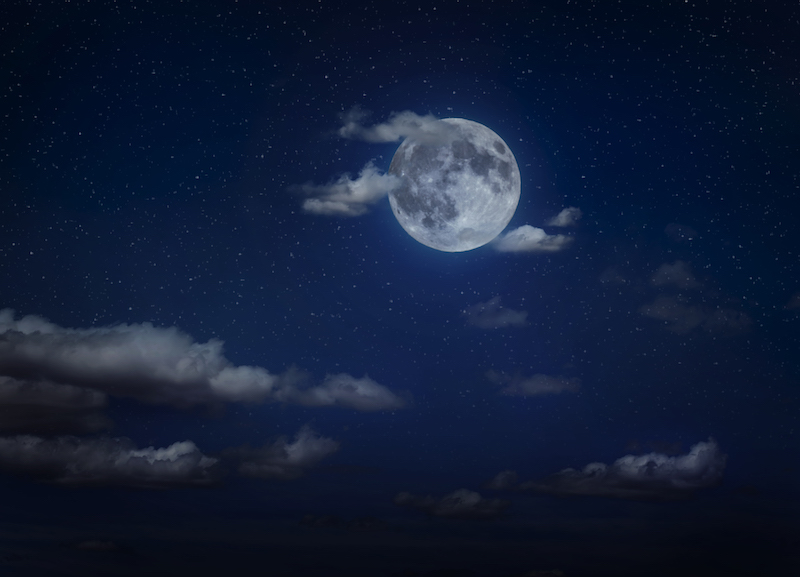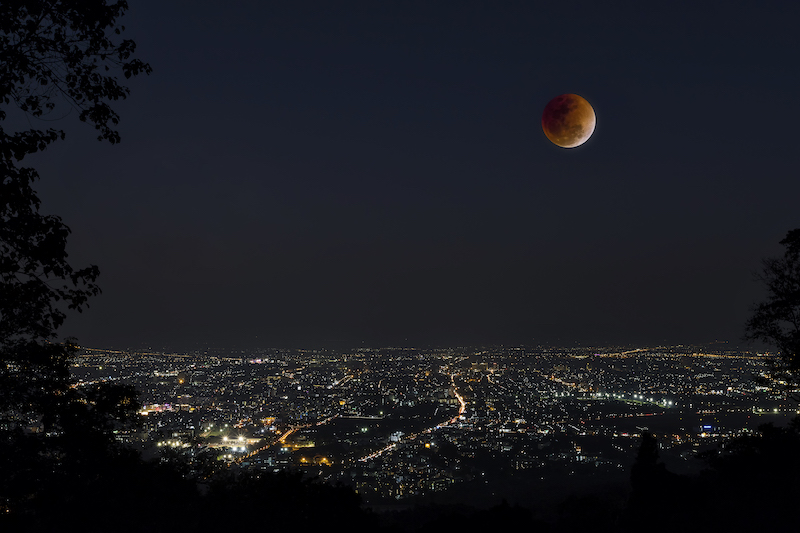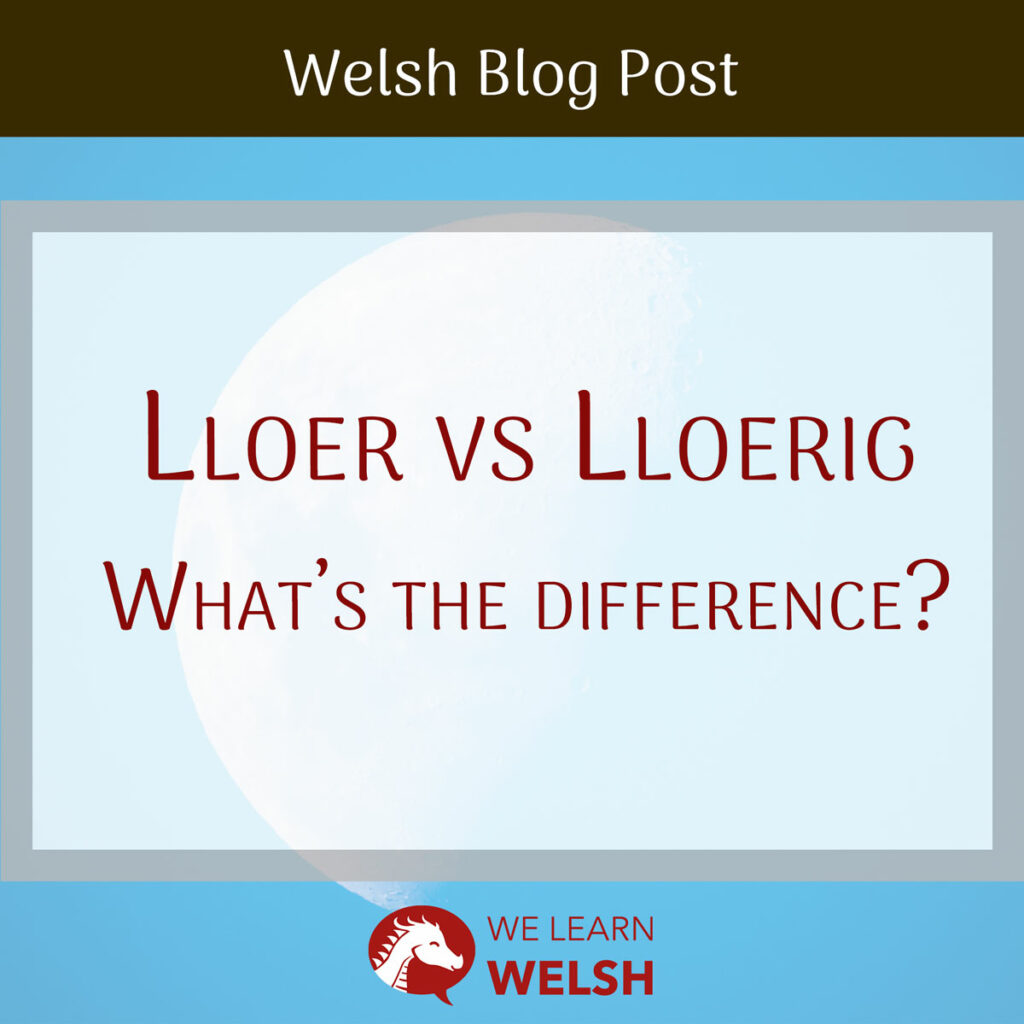Since the dawn of time, the moon has always been a point of interest for people and
civilisations all over the world. From tales about werewolves, stories about cheese and old wives tales relating to health issues, us humans have always been fascinated with the connection we have with the moon, and the role it plays for us here down on earth.
But how does this potential connection relate to language?
Well, to start things off, let’s compare these two Welsh words:
- Lloer – the moon
- Lloerig – to have lost one’s sanity
Notice a similarity? On the surface, it looks like the connection between these words are simple. But if we take a closer look, we can discover that the link between the two runs deeper than it appears.
How it was used back in the day
If you’re in South Wales, you’ve likely heard the word ‘lloer’ in day to day language, but it is actually the traditional and poetic Welsh word for ‘moon’. The Welsh word itself is found in several early, medieval texts such y Mabinogi, medieval hymns and Llyfr Taliesin, which is a collection of poetry, some of which is believed to have originated in the 6th century – making them some of the oldest Welsh texts to exist.
In these earlier texts, the word ‘lloer’ was used as a symbol of femininity, magic and the spiritual world – which reflected how the moon was perceived by our ancestors during these times.
So does this suggest the potential relationship between the words lloer and lloerig? And if so, how?
Well, it’s no secret that, back in the day, many societies believed that the moon controlled emotions, behaviours and mental health. In prehistoric and medieval Wales, the line between the physical and spiritual world was much thinner than it is today, and the moon was often considered to be a bridge, of sorts, between the two.
J. Gwynn Wiliams even wrote in ‘Witchcraft in Seventeenth-Century Flintshire’: The moon influenced man and beast in somewhat subtler ways. The sublunary world was strange and mysterious, as the words ‘lunatic‘ and ‘lloerig‘ (derived respectively from the Latin and Welsh words for moon) serve to remind us. Once, when a horse was sold in Denbighshire in Charles II’s reign, it was described as ‘moone blinde and sometimes at the change and full of the moone [it] could not see att all.’
This relationship is proved further when looking at other Welsh folk literature, the endless tales of the mysterious effects of the full moon and even in the relationship that the Celts had with the moon (they believed it influenced several things such as agriculture – but although Welsh is a Celtic language, there’s no direct connection we can draw between the Celts, and the link between lloer and lloerig).
It would appear, then, that the similarities between the words lloer and lloerig is a direct reflection of the historical belief that someone could be under the influence of the moon, causing them to act irrationally or out of the ordinary.

Roots and origins
Do we actually know when the word ‘lloerig’ came to be? Well, not really. Not for certain, anyway. We know that ‘lloer’ was used in medieval Welsh, so we can only assume that, seeing as ‘lloerig’ derives from ‘lloer’, it came a little afterwards. In fact, we can pinpoint its use in William Salesbury’s ‘Testament Newydd Iesu Grist’, the Welsh New Testament, which was published in 1567. In it, we see it reads ‘[y]r ei cythraulic, ar ei lloeric’, which roughly translates to ‘[those] which were possessed with devils, and those which were lunatic…’
We already know that the Welsh language, along with its Celtic siblings, was heaving influenced by Latin. So it’s relatively easy to see the link between ‘lloer’ and the Latin name for the moon, ‘luna’. In fact, before it was ‘lloer’, there are some records of it being spelt as ‘loyr’ in Old Welsh. Luna is also from where the English word ‘lunar’ derives, and, as a result, the word ‘lunatic’.
(fun fact: whilst the Welsh and Latin words for ‘moon’ are both linked with the modern words for insanity, the English word ‘moon’ derives from the Latin words ‘metri’, meaning to measure, and ‘mensis’, meaning month. So the word ‘moon’ is named as such because it was used to measure months. How interesting!)

How it’s used today
As we’ve already seen, ‘lloerig’ has always traditionally meant someone who is behaving beyond reason and could be under the influence of the moon. However nowadays, the use of the word leans more towards ‘being angry’, so you could use the word ‘lloerig’ to describe someone who’s lost their temper – although the roots are very much still there.
Ydy hi wedi bod mor loerig erioed?
Has she always been this lunatic?
It’s also worth noticing that although ‘lloer’ is the traditional word and is commonly used in the south, if you’re from or living in North Wales, you’re probably used to hearing ‘lleuad’ instead.
Mae’r lloer mor brydferth heno.
Mae’r lleuad mor brydferth heno.
The moon is so beautiful tonight.
Mae’r lloer mor brydferth heno.
Mae’r lleuad mor brydferth heno.
The moon is so beautiful tonight.
So the next time you’re angry and have steam coming out of your ears, remember to look up at the night sky – it may have something to do with the moon…

